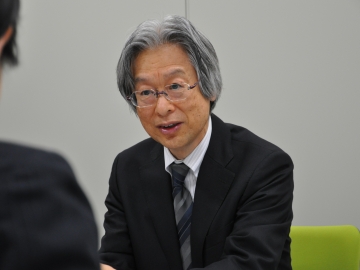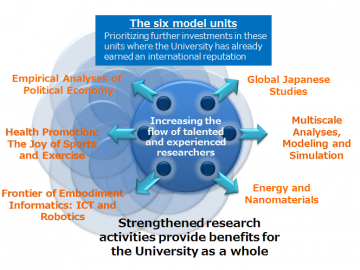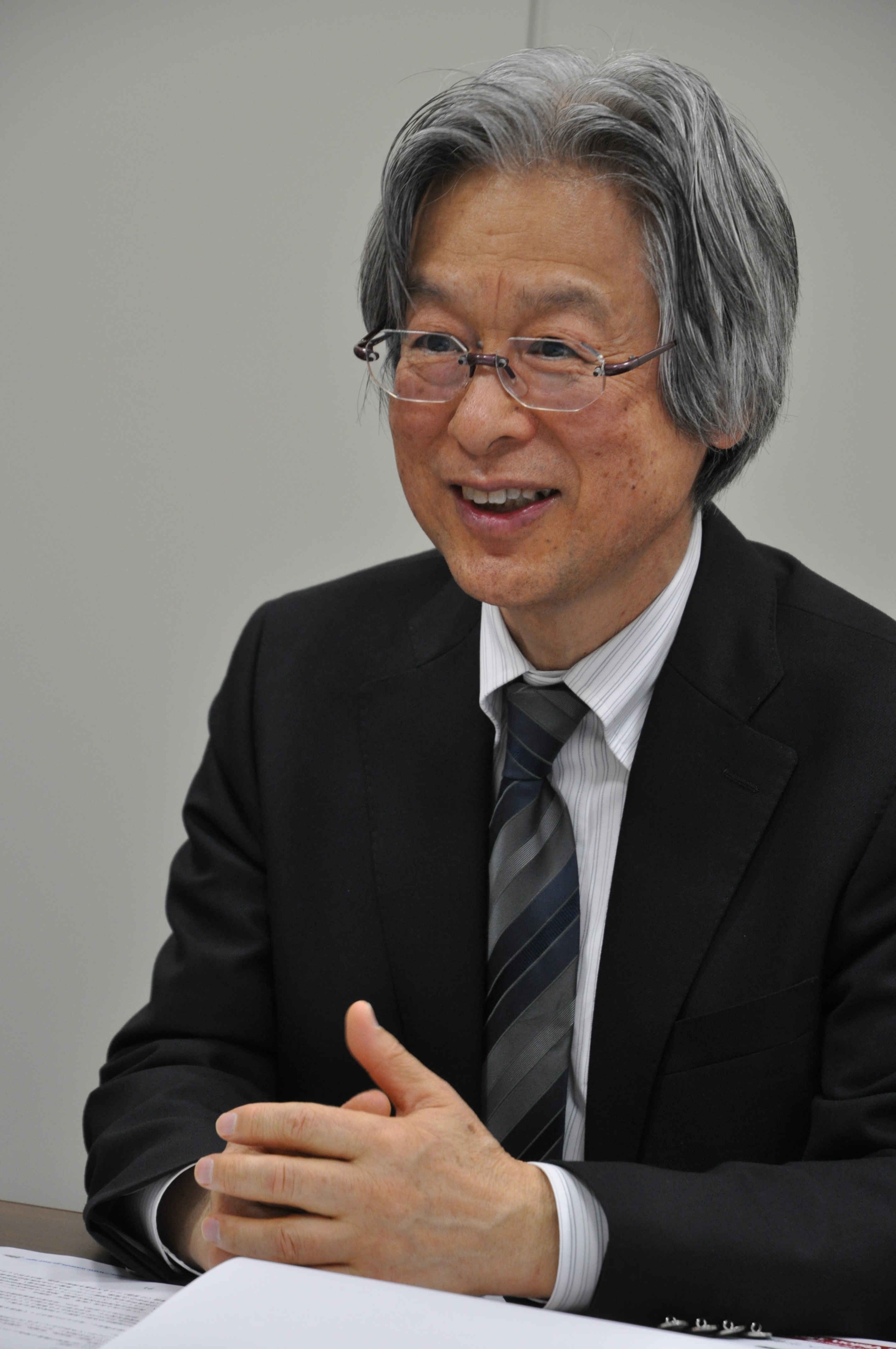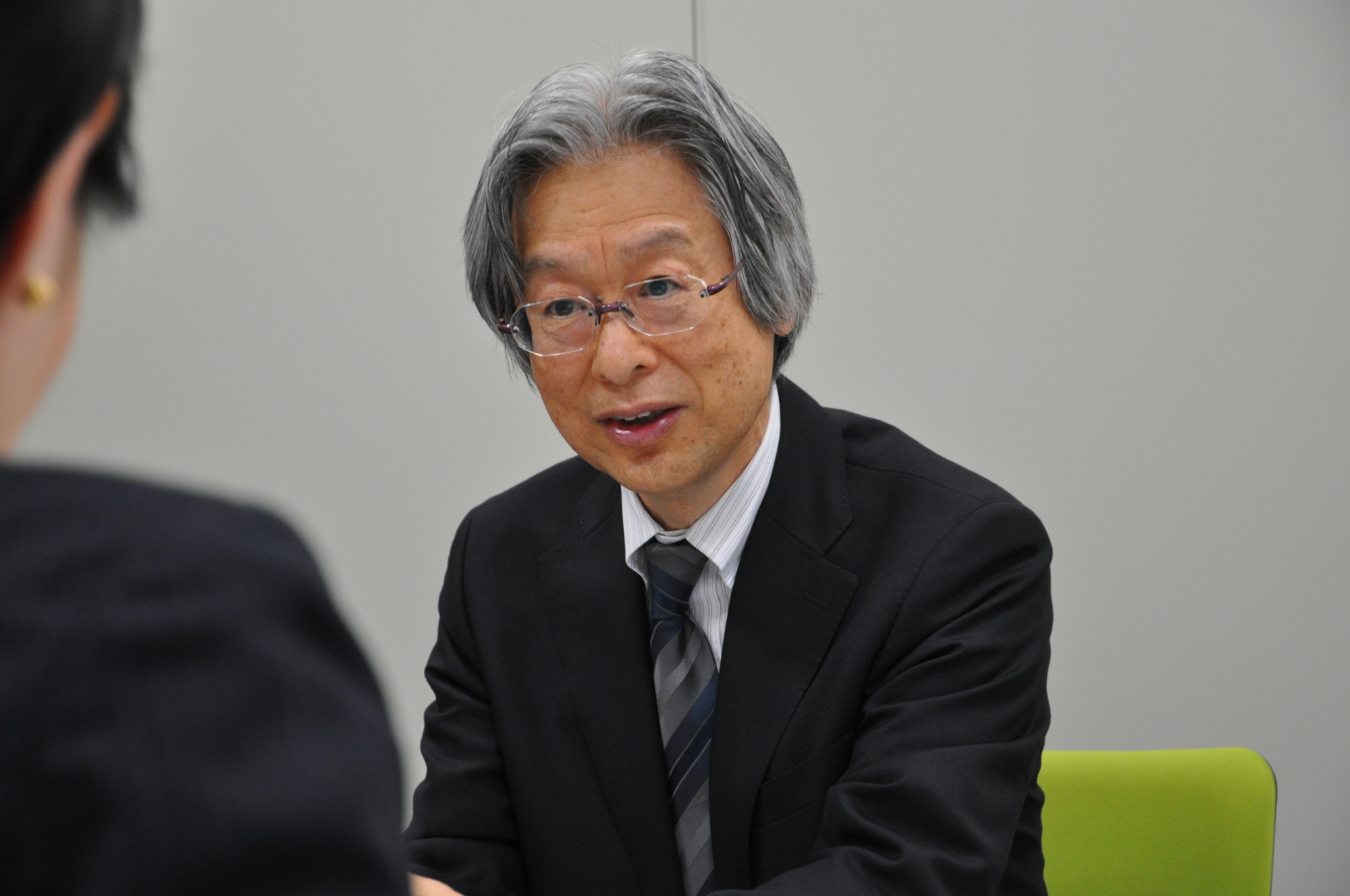Expanding the network of learning: The status of Waseda’s global revolution (Part 1 of 2)
Mon, Dec 26, 2016-
Tags
Selected by the Ministry of Education, Culture, Sports, Science and Technology (MEXT) for the Top Global University (TGU) Project, Waseda Goes Global is a ten-year plan initiated in 2014 to connect the University even more closely with the world, revolutionize its research and education programs, graduate 100,000 students trained for global leadership, and secure a top-100 global ranking in at least 18 of its 25 research areas. Professor Sato, Senior Executive Vice President for Academic Affairs & Provost, spoke on the progress of Waseda’s revolution.
TGU support is fast-tracking Waseda Vision 150 goals

Professor Seishi Sato, Faculty of Political Science and Economics
Senior Executive Vice President for Academic Affairs & Provost, Waseda University
What are the distinctive features of Waseda’s plans?
Under Waseda Vision 150, the strategic plan adopted in 2012, Waseda University has been making extraordinary efforts to enhance its status as a leading global university by its 150th anniversary in 2032. In 2014, the University was chosen by MEXT in the top class of research schools to lead Japanese academia in the global era. Waseda is one of only two private institutions to qualify with eleven national public universities in the most exclusive Type A category.
Waseda’s TGU project will play a crucial role in building a global network of learning. The University is dedicated to making the world a better place by enhancing research activities, collaborating with universities around the world, and building students into global leaders. The concept is to create a virtuous spiral of education and research, where such global leaders will pursue even more advanced research and make greater contributions to society.
The most distinctive feature of Waseda Goes Global is the focus on six model units. Waseda is prioritizing further investments in these fields where the University has already earned an international reputation.
 Backed by the TGU funding and assistance, initiatives under Waseda Goes Global are accelerating implementation of the Waseda Vision 150 plan. Although the six model units are centered on research and graduate-level education, strengthening these research activities will naturally provide benefits at the undergraduate level as well.
Backed by the TGU funding and assistance, initiatives under Waseda Goes Global are accelerating implementation of the Waseda Vision 150 plan. Although the six model units are centered on research and graduate-level education, strengthening these research activities will naturally provide benefits at the undergraduate level as well.
Joint Supervision program for a global network of learning
What are some of the initiatives for building Waseda’s global network?
In order to enhance its global network, Waseda must enrich the environment and opportunities for students and faculty to work with researchers from other universities.
In 2016, Waseda’s Energy and Nanomaterials Unit introduced the Joint Supervision Program as a key piece of these efforts. The program will allow doctoral students to receive guidance from both Waseda University and another host institution abroad. The Unit has already signed agreements with Australia’s Monash University and Korea University, under which students completing the program will receive a certificate with the names of both university presidents.
 Waseda University’s Double Degree (DD) Programs are also based on close cooperation with institutions overseas. Students take part in internships utilizing the faculty’s personal networks and earn two degrees, from Waseda as well as the other host institution. To further increase the flow of talented and experienced researchers, we must also consider frameworks with more flexibility, allowing more students to challenge themselves.
Waseda University’s Double Degree (DD) Programs are also based on close cooperation with institutions overseas. Students take part in internships utilizing the faculty’s personal networks and earn two degrees, from Waseda as well as the other host institution. To further increase the flow of talented and experienced researchers, we must also consider frameworks with more flexibility, allowing more students to challenge themselves.
That is why Waseda is working on Joint Degree (JD) Programs. Because participating universities will confer one degree under both names, the institutions must mutually agree on a common course of study, where students are required to submit only one thesis, not two as is required in many DD programs. Instead of writing a second thesis, JD programs will give students the opportunity to take on other activities.
The Joint Supervision Program was designed with the intent of implementing JD programs in the future, and running the Joint Supervision Program will provide valuable insight into what kind of system is necessary to meet graduation requirements for universities in several countries. No joint degree programs have been established in Japan yet, but Waseda University is working to make it a reality.
For faculty, the Joint Appointment (JA) Program is a system established to have affiliation with and compensation from both Waseda University and a second institution. To further promote JA and encourage international academic collaboration, Waseda is continually studying the needs of individuals and its partner institutions. As part of its future vision, Waseda University is dedicated to making changes for better and more flexible working conditions for world-class students and faculty.
Furthermore, selected graduate students in these programs receive stipends, study abroad, and work together with faculty members who have connections overseas. They also have the opportunity to present their research at international conferences. These young researchers are showing promising results, such as receiving the Ikushi Prize from the Japan Society for the Promotion of Science for example.
Thinking about the roles of universities in a global society
What is the purpose of the international symposium in January 2017, the first to be organized by Waseda University’s TGU Steering Conference?
The main focus of this symposium is on the global network of universities. As we report our progress in the TGU Project, the TGU Steering Conference hopes that graduate students will attend and be inspired to pursue global careers.
Vice Presidents from leading global universities will speak on strategies for global engagement. In addition, doctoral students at Waseda University will share their experiences overseas, providing real examples for graduate students aspiring the same direction. I would like to invite not only university-related personnel but many students to the symposium as well.
Universities in a Global Society: Framework of Education for Prospective Global Leaders
This symposium will focus on international collaboration in education and research, and introduce global initiatives at Waseda University. Part 1 will be an overview of Waseda University’s global engagement strategies. This part will also include invited talks on global engagement strategies by representatives from three universities overseas, which have structured new educational frameworks for the Top Global University project (TGU). Part 2 will look at specific cases in the joint appointment system (JA) and the joint supervision program, which were established with the University’s aim to implement a joint degree program (JD) in the future. Moreover, doctoral students and respective faculty members from partner institutions will share their experiences on these frameworks.
- Date & Time: January 23, 2017 (Mon), 14:30–17:30
- Venue: Okuma Small Auditorium
- Language: English and Japanese (simultaneous interpretation will be provided)
- Free admission
- Open to students, graduate students, faculty & staff, and the general public
- Contact information: [email protected]
- To participate, fill out the registration form
Program outline
Part 1: Strategies for Global Engagement
- 14:30 Opening Address by Professor Shuji Hashimoto, Senior Executive Vice President for Academic Affairs & Provost, Waseda University
- 14:35 Welcome Speech by Hideki Iwabuchi, Guest of Honor from the Ministry of Education, Culture, Sports, Science and Technology
- 14:45 Plenary Talk “Waseda University’s Global Engagement Strategies” by Professor Norimasa Morita, Vice President for International Affairs, Waseda University
- 14:55 Invited Talk 1 “Monash University, International Networks and Overseas Campuses” by Professor Zlatko Skrbis, Vice-Provost, Monash University
- 15:10 Invited Talk 2 “Faculty and Student Mobility of Korea University” by Professor Dong Hoon Choi, Vice President, Korea University
- 15:25 Invited Talk 3 “Co-supervision Program with Overseas Universities” by Professor Andreas Zimmer, Vice Rector, University of Bonn
- 15:40 Break
Part 2: International Collaboration for Future Global Leaders
- 15:55 Plenary Talk “Expectations of Industrial Sectors for Future Global Leaders” by Dr. Yoshihiko Nagasato, Chairman, Sub-committee on Industry-Academia-Government Cooperation, Committee on New Industry and Technology, Japan Business Federation
- 16:10 Waseda University’s Efforts 1 “Efforts and Challenges in Borderless Education and Research through Joint Appointments and Joint Supervision” by Professor Hiroyuki Nishide, Leader of the Energy and Nanomaterials Unit, Waseda University
- 16:25 Waseda University’s Efforts 2 “Joint Appointment Faculty Activities at Waseda University” by Associate Professor Francesco Greco (JA), Istituto Italiano di Tecnologia (IIT) and Professor Vladimir Georgiev (JA), University of Pisa
- 16:45 Waseda University’s Efforts 2 “International Collaboration Strategies in the Empirical Analyses of Political Economy Unit” by Professor Aiji Tanaka, Leader of the Empirical Analyses of Political Economy Unit, Waseda University
- 17:00 Doctoral Student Experiences “Joint Research Guidance at IIT, University of Chicago, University of Bonn and Korea University” by Mr. Kento Yamagishi, Mr. Ryo Kato, Mr. Satoru Wakabayashi, and Mr. Shunsuke Kawano from Graduate School of Advanced Science and Engineering
- 17:20 Closing Address by Professor Seishi Sato, Vice President for Academic Affairs, Waseda University
Organized and Cosponsored by
Organized by Waseda University TGU Steering Conference
Cosponsored by Waseda University Leading Graduate Program in Science and Engineering and Three Dimensional Development of Lab-Exchange type Biomedical Science Research Consortium














